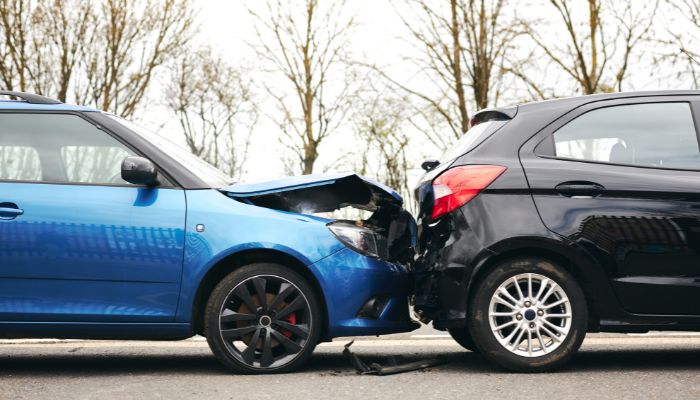When it comes to car insurance, understanding the different types of coverage can feel overwhelming. One of the most commonly misunderstood types is comprehensive auto insurance. While its name may sound all-encompassing, many drivers are unsure of exactly what it covers, how it’s different from other types of insurance, and whether they really need it.
In this blog, we’ll break down everything you need to know about comprehensive auto insurance—what it covers, how it works, and why it could be essential for protecting your vehicle.
What Is Comprehensive Auto Insurance?
Comprehensive auto insurance, often referred to as “comp,” is a type of car insurance coverage that pays for damages to your vehicle caused by events other than a collision with another vehicle. These are typically events that are out of your control, such as weather damage, theft, or vandalism. Comprehensive insurance is designed to help you repair or replace your car if it’s damaged by non-collision-related incidents.
It’s important to note that comprehensive coverage is optional in most states, meaning it’s not legally required like liability insurance. However, if you’re leasing or financing a vehicle, your lender will likely require you to carry both comprehensive and collision insurance.
What Does Comprehensive Auto Insurance Cover?
Comprehensive auto insurance covers a wide range of incidents, often referred to as “acts of God” or events beyond your control. Here’s a breakdown of what’s typically included under comprehensive coverage:
- Theft
If your vehicle is stolen, comprehensive insurance helps cover the cost of replacing it. It can also cover the damage if your car is recovered but in poor condition. - Vandalism
If someone deliberately damages your car—whether it’s a broken window, slashed tires, or graffiti—comprehensive coverage can help pay for the repairs. - Natural Disasters
Damage from events like hurricanes, tornadoes, floods, or earthquakes is covered. This is especially important in areas prone to extreme weather, like Florida or California. - Falling Objects
If a tree branch falls on your car during a storm or if debris from a construction site causes damage, comprehensive insurance will help cover the cost of repairs. - Fire
Whether caused by a wildfire, an electrical malfunction, or another source, damage to your car due to fire is covered under comprehensive insurance. - Animal Collisions
If you hit an animal—like a deer—or if an animal damages your vehicle in another way, comprehensive coverage can help with the costs of repair. For example, this could also include instances where an animal chews through wiring under the hood. - Glass Damage
Many comprehensive policies cover glass damage, including broken windshields, side windows, or rear windows. - Weather-Related Damage
Comprehensive insurance will help pay for damages from weather events like hailstorms or heavy rain. This includes issues like hail dents or water damage if your car is caught in a flood. - Civil Disturbances
If your car is damaged during a riot or a public disturbance, comprehensive insurance will cover the costs of repair.
What’s Not Covered by Comprehensive Auto Insurance?
While comprehensive auto insurance covers a broad range of non-collision events, it’s important to understand its limitations. Here are some things comprehensive insurance won’t cover:
- Collision Damage
If you’re involved in an accident with another vehicle, comprehensive insurance won’t cover the damage to your car. You’ll need collision coverage for that. - Damage to Another Vehicle or Person
If you cause an accident, comprehensive insurance doesn’t cover damage to the other driver’s car or their medical bills. That’s what liability insurance is for. - Mechanical Breakdowns
Comprehensive insurance won’t cover regular wear and tear, mechanical breakdowns, or issues that arise from poor maintenance. - Personal Belongings
If someone breaks into your car and steals your personal belongings (like a laptop or purse), comprehensive insurance won’t cover those losses. You’ll need renters or homeowners insurance for that.
How Does Comprehensive Auto Insurance Work?
Here’s a step-by-step breakdown of how comprehensive auto insurance works:
- Choose Your Deductible
Like most types of insurance, comprehensive coverage comes with a deductible, which is the amount you’ll pay out of pocket before your insurance kicks in. Common deductibles range from $250 to $1,000. The higher the deductible you choose, the lower your monthly premium will be, but you’ll have to pay more upfront in the event of a claim. - Pay Your Premium
Your premium is the amount you pay for your insurance policy, typically monthly or annually. Comprehensive coverage is optional, so adding it to your policy will increase your premium. However, the increase may be relatively modest depending on factors like your car’s value and where you live. - File a Claim
If your car is damaged by an event covered under comprehensive insurance, you’ll need to file a claim with your insurance company. Make sure to provide all necessary documentation, including photos of the damage and any police reports (if applicable). - Insurance Adjuster Assessment
Once you file a claim, the insurance company will send an adjuster to assess the damage and determine the cost of repairs or replacement. - Repair or Replacement
After the assessment, the insurance company will cover the cost of repairs or, in the case of total loss (when the cost of repairs exceeds the value of the car), the insurer will pay the actual cash value of your car, minus your deductible.
Do You Need Comprehensive Auto Insurance?
Whether or not you need comprehensive auto insurance depends on several factors, including the value of your vehicle, your location, and your risk tolerance. Here are a few scenarios where comprehensive insurance is particularly valuable:
- You Live in an Area Prone to Natural Disasters
If you live in a region that frequently experiences hurricanes, floods, or wildfires, comprehensive coverage is highly recommended to protect your vehicle from weather-related damage. - You Park on the Street or in High-Crime Areas
If your car is parked in an area with high rates of theft or vandalism, comprehensive insurance can offer peace of mind. - Your Car Has Significant Value
If your car is relatively new or has a high resale value, comprehensive coverage can be worth it to protect your investment.
On the other hand, if your car is older and has depreciated in value, the cost of comprehensive insurance may not be worth the potential payout. In such cases, you might opt to save on premiums and set aside money for repairs instead.
Conclusion: Is Comprehensive Auto Insurance Right for You?
Comprehensive auto insurance provides essential protection against a wide range of non-collision-related damages that could otherwise leave you with costly repairs or even the loss of your vehicle. While it’s not legally required, it’s a valuable option for many drivers, especially those who live in high-risk areas or own newer, high-value cars.
Ultimately, whether or not you need comprehensive insurance depends on your vehicle’s value, where you live, and your budget. If you’re looking for peace of mind against unexpected events like theft, vandalism, or natural disasters, comprehensive coverage could be a wise investment.
When you’re reviewing your auto insurance options, take the time to discuss your needs with your insurance provider to ensure you’re getting the right coverage for your specific situation.



